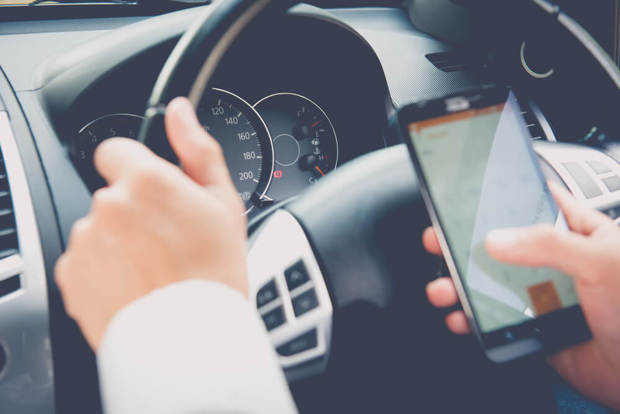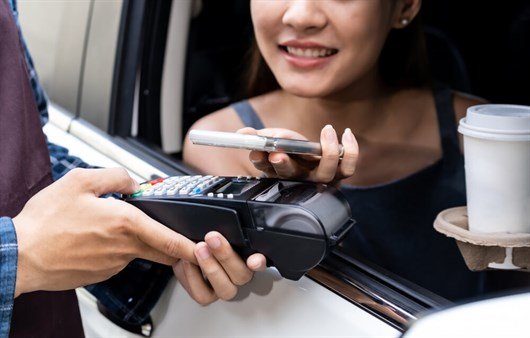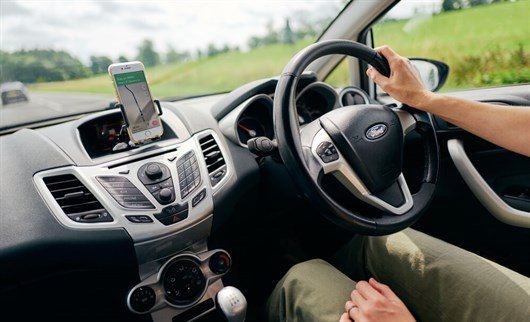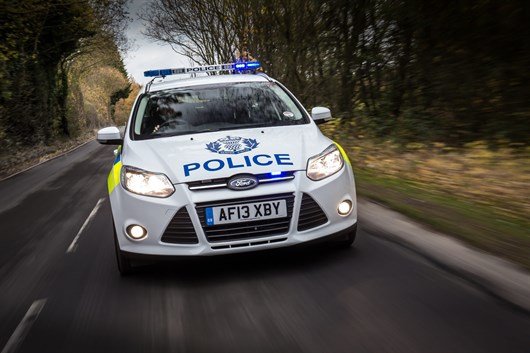Any hand-held mobile phone use at the wheel now illegal

Drivers caught using their mobile phone to take photos or videos, scroll through playlists or play games now face a fine of up to £1,000, six points on their licence or a driving ban.
The Government has strengthened existing laws which already meant it was illegal to text or make a phone call (other than in an emergency) using a hand-held device while driving.
The move follows a public consultation that found 81% of respondents supported the tougher proposals.
Drivers are still able to use a device ‘hands-free’ while driving, such as a sat-nav, if it’s secured in a cradle.

Transport secretary Grant Shapps said: "I will do everything in my power to keep road-users safe, which is why I am taking a zero-tolerance approach to those who decide to risk lives by using their phone behind the wheel.
This exemption covers, for example, places like a drive-through restaurant or a road toll, and only applies when payment is being made with a card reader. It does not allow motorists to make general online payments while driving.

The Government has revised The Highway Code to explain the new measures and will make it clear that hand-held mobile phone use at traffic lights or in motorway jams is illegal except in very limited circumstances.
"The best thing to do is to convert your glovebox into a phone box." Edmund King, The AA
Edmund King AA president said: "The AA has long campaigned to make handheld mobile phone use while driving as socially unacceptable as drink driving and we warmly welcome the new law. This is a much-needed toughening of the rules to help make our roads safer.
"Those who believe they can still play with their phone because it’s in a cradle must think again – they leave themselves open to prosecution for either careless or dangerous driving.
"The best thing to do is to convert your glovebox into a phone box. We all need to keep our hands on the wheel and our eyes on the road."

How effective will the tougher mobile phone rules be?
The Government has launched an £800,000 awareness campaign which will run across video on demand, online video, social media channels and radio in England and Wales until the end of April 2022.
However, just prior to the new changes, RAC research found four-in-10 (43 per cent) of drivers were not aware of the changes being introduced and just two per cent believe it will be very effective in improving driver behaviour.
Of those who have concerns the roads won’t be made safer by the changes, 86 per cent said that it’s because some drivers will always persist in using a phone illegally regardless of the law, while 70 per cent said the problem is drivers don’t feel they’re likely to get caught in the first place.
More than a quarter (28 per cent) fear not enough will be done to let drivers know about the changes.

When it comes to what drivers think needs to be done to reduce the number of people using a handheld phone illegally at the wheel, drivers are split.
Almost equal proportions believe that more visible police enforcement (23 per cent), a high-profile advertising campaign (24 per cent) and even tougher laws (26 per cent) – such as the threat of a driver losing their licence altogether if caught. A fifth meanwhile (20 per cent) would like to see cameras used to catch drivers acting illegally.
RAC spokesperson Rod Dennis welcomed the strengthening of the law but warned that police enforcement will be essential.
“It’s arguable that it will only be truly effective if it’s rigorously enforced," he said. "If some drivers still don’t feel they’re likely to be caught, then simply making the law tougher isn’t going to have the desired effect of making our roads safer. That explains why such a tiny proportion of drivers – just 2% - think the new changes will be very effective in changing behaviour.
“The dial really needs to be turned up when it comes to enforcement, and that means police forces having the resources and technology they need to more easily catch those drivers that continue to flout the law. Cameras that can automatically detect handheld phone use exist and are in use in other countries, so we think it’s high time the UK Government evaluated this technology with a view to allowing police forces to deploy it at the earliest opportunity.”
How can I legally use my mobile phone while driving?
It is legal to make and receive calls using a hands-free system such as bluetooth.
However, be aware that you must stay in full control of your vehicle at all times. The police can stop you if they think you’re not in control because you’re distracted and you can be prosecuted.
The law allows you to use a handheld mobile phone while driving if you need to make an emergency call to 999 or 112 and it is unsafe to pull over and stop to make the call.
What are the penalties for using a handheld mobile phone while driving?
If you are caught using a hand-held phone while driving you can get six penalty points and a £200 fine.
New drivers (those who passed their driving test within two years of the offence) will also lose their licence.
You can get a further three penalty points if you don’t have a full view of the road and traffic ahead or proper control of the vehicle if you are using a handheld defence.
You may also be taken to court and banned from driving and receive a maximum fine of £1,000.

